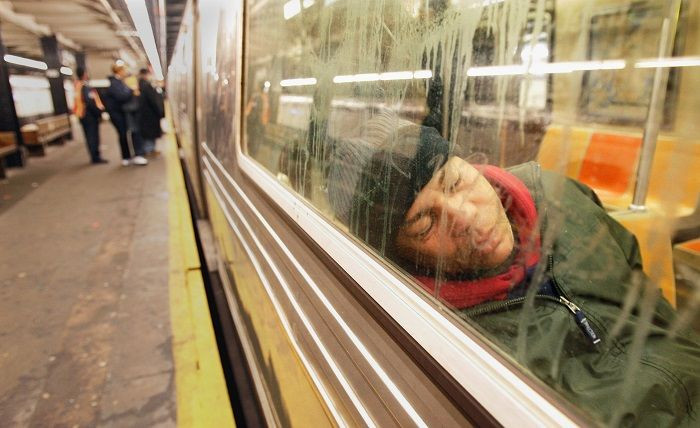Night Shift Workers, People Who Are Chronically Sleep-Deprived May Have Increased Risk of Heart Disease

People who work the night shift are up working when most people are asleep, and many of them attempt to sleep when everyone else is working. Shift workers tend to be continually sleep-deprived. The symptoms of not getting enough sleep — problems with concentration, lack of energy, and irritability — may seem harmless, but chronic sleep deprivation can take a serious toll on the body. New research published in the American Heart Association's journal Hypertension found that an insufficient amount of sleep may cause the body’s involuntary processes, or responses that controls the body’s internal environment, to malfunction. This could lead to an increased risk of cardiovascular disease, it suggests.
"In modern society, social opportunity and work demand have caused people to become more active during late evening hours leading to a shift from the predominantly daytime lifestyle to a more nocturnal one,” lead author Dr. Daniela Grimaldi, research assistant professor at Northwestern University in Chicago, said in a statement. “Exposure to consecutive days of sleep loss can impair cardiovascular function and these negative effects might be enhanced when changes in feeding and/or sleep-wake habits lead to a circadian disruption."
While it’s no secret that insufficient sleep and a disturbance in the circadian rhythm (physical and behavioral changes that follow an approximately 24-hour cycle) are associated with adverse heart outcomes, the cause is unclear. To determine why these are linked, researchers studied 26 healthy people aged 20 to 39 who were asked to restrict their sleep to five hours for eight days with either fixed bedtimes (circadian alignment) or bedtimes delayed by eight and a half hours on four of the eight days (circadian misalignment).
Researchers found that both groups had an increased heart rate during the day, but the heart rate was even higher at night for the group that had delayed bedtime. Participants in the delayed bedtime group also had reduced heart rate variability, or time interval between one heartbeat and the next, at night, a condition which is associated with higher stress. The combination of sleep deprivation and delayed bedtimes was also associated with an increase in 24-hour urinary excretion of norepinephrine, a stress hormone that can constrict blood vessels, raise blood pressure and expand the windpipe.
"In humans, as in all mammals, almost all physiological and behavioral processes, in particular the sleep-wake cycle, follow a circadian rhythm that is regulated by an internal clock located in the brain," Grimaldi said. "When our sleep-wake and feeding cycles are not in tune with the rhythms dictated by our internal clock, circadian misalignment occurs."
These effects are more likely to occur in shift workers because insufficient sleep is common among this group, which represent 15 percent to 30 percent of the working population in industrialized countries, researchers said.
"Our results suggest shift workers, who are chronically exposed to circadian misalignment, might not fully benefit from the restorative cardiovascular effects of nighttime sleep following a shift-work rotation," Grimaldi said.
Previous studies have also linked disrupted sleep cycles to diabetes and breast cancer. However, shift work can’t be avoided, and it’s not like all of those who work them can just up and quit their jobs — people have to earn a livelihood. So, to mitigate the adverse effects of shift work, researchers suggests workers adopt a healthy diet, exercise regularly, and get more sleep if possible.
Source: Grimaldi D, Carter J, Van Cauter V, Leproult R. Adverse Impact of Sleep Restriction and Circadian Misalignment on Autonomic Function in Healthy Young Adults. Hypertension. 2016.



























